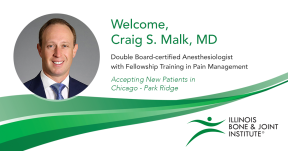What is Myofascial Pain Syndrome?
Myofascial Pain syndrome (MPS) is a condition that describes chronic muscle pain. The condition affects both the muscles (Myo) and the connective tissues (fascia) that cover and join the muscles. MPS can affect a single muscle or entire muscle groups. Physicians often find with Myofascial pain that because of the fascia, the actual tender or pain point may not be the area that is the source of the pain. For example, connective tissue in your hip runs all the way through to your head, so it’s possible that pain in your neck, may be the result of an injury to lower back or hip, and vice versa. The actual pain is a trigger point, this is why you’ll often hear myofascial pain referred to as trigger points.
What causes MPS?
Myofascial Pain (trigger points) is usually the result of a muscle injury, excessive muscle fatigue or strain on certain muscle groups. While it is very difficult to identify certain activities or injuries that cause myofacial pain syndrome, most sports, such as basketball, baseball, football, or hockey, put much demand on the body and, depending on the sport, particular muscles groups. If you injure your back or legs as a result of playing one of these sports, trigger points are possible. In addition to sports, careers or jobs that require great physical demand can also cause injury which may lead to Myofascial Pain Syndrome.
What are the symptoms of Myofascial pain?
Myofascial pain syndrome patients most commonly complain of localized muscle tenderness. The muscle pain usually has specific “trigger points” that are tender to the touch. This localized area commonly has very tight muscles which knot and cause pain. Other common symptoms of myofascial pain include: sharp aching pain in a muscle, constant deep muscle pain and knots underneath the skin. Sometimes, the fact that regular treatment for muscle pain, like rest and ice, doesn’t work is an indication of myofascial pain syndrome.
What to do if you have Myofascial symptoms?
If you are suffering from myofascial like symptoms is best to schedule online with a physician and get a proper diagnosis. Treatment may include physical therapy, stress reduction or medication, but our physicians at IBJI will put together a comprehensive treatment plan to help reduce or eliminate your pain. Contact a physician today for best treatment in the Chicagoland area.
*This content is for information only and is not intended to replace the diagnosis, treatment, or medical advice from your treating healthcare professionals. The content does not provide medical advice, does not constitute the practice of medicine or other healthcare professional services, and does not create a doctor-patient relationship. You should not rely on this information as a substitute, nor does it replace professional medical advice, diagnosis, or treatment. If you have concerns or questions, seek the advice of your healthcare professionals. If you think you may have a medical emergency, call your doctor or 911 immediately. Do not rely on electronic communications or communicate through this website for immediate, urgent medical needs. This website is not designed to facilitate medical emergencies. The use of the information is at the reader’s own risk. The links are provided for information and convenience only. We cannot accept responsibility for the sites linked or the information found here. A link does not imply an endorsement of a site.




